Grantees in action
The ReFED COVID-19 Food Waste Solutions Fund was launched to quickly deliver vital funding to high-impact for-profit and nonprofit organizations with the ability to rapidly scale food waste reduction and hunger relief efforts that address challenges related to COVID-19. Grantees will collectively rescue – in 90 days – more than a total of 50 million pounds of healthy, fresh food that would otherwise be wasted. Check out the work of these organizations below.

412 Food Rescue
412 Food Rescue is expanding food access services through its Food Rescue Hero mobile app by developing a home delivery feature to serve the growing number of isolated food insecure individuals. A national platform will also be released, allowing food rescue organizations across the country to use the technology. Nearly 3,000,000 meals (3,600,000 pounds of food) will be delivered to those who need it over the next 90 days.
STORIES AND PHOTOS
412 Food Rescue reports that they mobilized six local restaurants during its COVID-response work to prepare meals for home delivery and its nonprofit partners in order to feed people. Thanks to the support of a local donor that kicked off the Community Takeout program with seed donations, 412 Food Rescue is supporting the restaurants through this crisis by providing compensation for workers to create single-serve meals that are then distributed to families in need. A portion of every donation is also provided to Greater Pittsburgh Restaurant Workers Mutual Aid (PRWA) — a grassroots organization aiding unemployed restaurant workers.
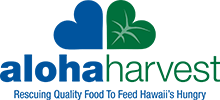
Aloha Harvest
Aloha Harvest is scaling hunger relief efforts in Hawaii by working directly with local farmers, ranchers, fisherman, and distributors to get nutritious food to those in need, especially children, seniors, and those affected by the decline in island tourism. Since the onset of COVID-19, Aloha Harvest has tripled the volume of food recovered and quadrupled the number of community partners. In the next 90 days, they expect to rescue over 1,000,000 pounds of food.
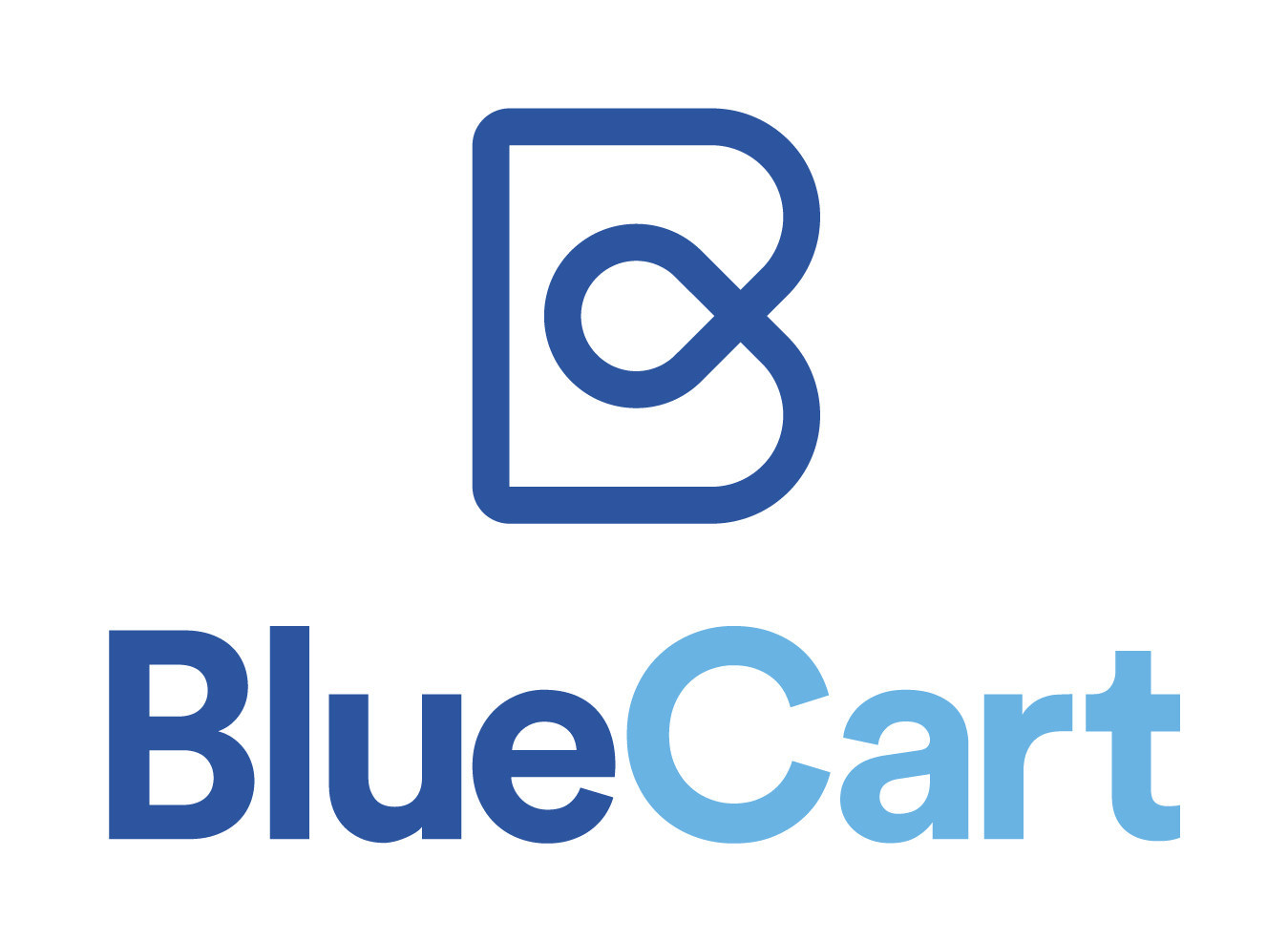
BlueCart
BlueCart is a B2B marketplace for the hospitality industry, working with over 82,500 restaurants and suppliers. In response to COVID-19, they are expanding their services to include a B2FoodBank model, offering their procurement platform free of charge for food banks to purchase surplus and discounted products from suppliers. The company believes this initiative could save nearly $110 million worth of otherwise wasted food.
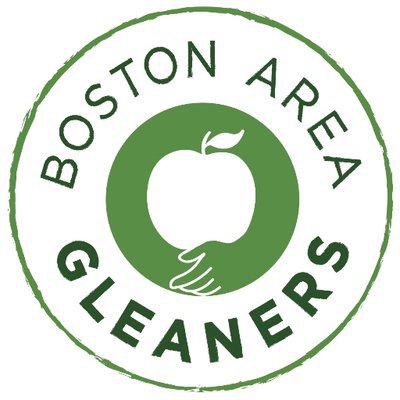
Boston Area Gleaners
Boston Area Gleaners (BAG) works closely with local farms and volunteer laborers (gleaners) to provide hunger-relief programs across Massachusetts with access to fresh, high-quality produce that would otherwise be plowed under. BAG expects to rescue and distribute more than 600,000 pounds of fresh food over the next 90 days and is supporting efforts to replicate its model nationally.
STORIES AND PHOTOS
BAG reports that they have developed a new partnership with Healthy Waltham – a local non-profit whose mission is to promote collaborative approaches to improving the health and wellness of underserved and low-income populations through programs that increase access to healthy foods, provide nutrition education, and create opportunities for physical activity. Healthy Waltham has been organizing pop-up food distribution sites in Waltham. Boston Area Gleaners has been working with Healthy Waltham to provide both cold storage and trucking support. A recent food distribution served more than 700 families.
BAG leveraged its existing infrastructure to secure a contract with the USDA to purchase produce from farms (reducing farm-level waste) and distribute family-sized boxes of mixed vegetables to its distribution partners.
BAG have also been working with a new produce supplier to purchase produce for its pantries and secured a donation of fruit that would have otherwise been wasted, which helped educate the new vendor on food waste reduction options besides composting.

Brighter Bites
Brighter Bites, through its existing programs, plans to deliver more than 11,500,000 pounds of produce to food insecure individuals over the next 90 days. The organization has also piloted a new program that pays farmers the marginal cost of their crops to prevent them from being tilled under. One example of the first successes of Brighter Bites’ new program is the rescue of 30,000 pounds of romaine lettuce from the Salinas Valley and its delivery to the Los Angeles Food Bank.
STORIES AND PHOTOS
Brighter Bites reports that they have been able to deepen their relationship with a producer that has donated regularly to its program for several years. Normally, they donate finished product that they have harvested and processed, before realizing they may not have a market. Through this grant, Brighter Bites has been able to help this producer out by covering the costs of harvesting produce that otherwise would be left in the field and allowing them to move the produce without adding additional costs. Because of this partnership, they established a new field pack to maximize the amount of produce in the least amount of packaging.
According to Brighter Bites, "This new element to the partnership combined with the existing donation arrangement, is a testament to the ability of a little bit of capital to unlock a lot of additional product, exponentially increasing our reach into communities experiencing food insecurity."
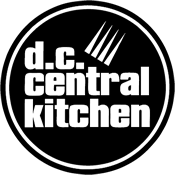
DC Central Kitchen
DC Central Kitchen is leveraging its community kitchen model to procure local vegetables and pay farmers their marginal costs, so that produce is not left in the fields. Over the next 90 days, they expect to recover at least 500,000 pounds of produce for their emergency food and meal distribution program for food insecure individuals in the Washington, D.C. area.
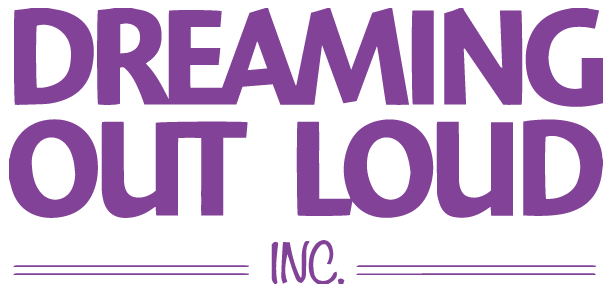
Dreaming Out Loud
Dreaming Out Loud (DOL) creates economic opportunities for marginalized communities by operating a local sourcing food hub that supports small local farms (60 percent are farmers of color and 70 percent are women) and Black-owned food enterprises in feeding the DC and MD region through farmers markets and community supported agriculture. Additionally, in partnership with World Central Kitchen, graduates from DOL’s Food Business Incubator are creating 1,200 meals daily for those impacted by COVID-19. They expect to recover at least 500,000 pounds of food in the next 90 days.
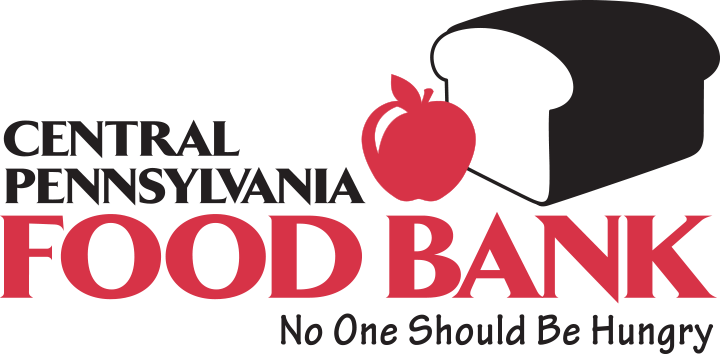
Central Pennsylvania Food Bank
Central Pennsylvania Food Bank has rescued more than 9,600,000 pounds of food since the onset of the pandemic. Through creative partnerships with companies like FedEx, Pennsylvania Farm Show, and the Pennsylvania Agricultural Surplus System, they have increased their capacity and are able to compensate farmers, at least in part, for the costs associated with recovering produce. Over the next 90 days, they anticipate rescuing 12,900,000 pounds of food.
STORIES AND PHOTOS
The Food Bank shares the story of receiving an emergency call from a family where both parents were recently released from the hospital to recover from COVID-19 at home. They were still suffering from the virus and needed food for their family. Their son made the call to ask for assistance – he couldn’t leave the house and didn’t have any money for food. The Food Bank staff talked with him about their situation and how they could reach them. They were able to provide Crisis Response Boxes, as well as fresh produce and frozen meat from its Harrisburg Healthy Food Hub. The Food Bank also provided a gift card so that they could buy a specific food that the parents were craving – grapes. A neighbor picked up the food from the Food Bank and delivered everything to their doorstep.
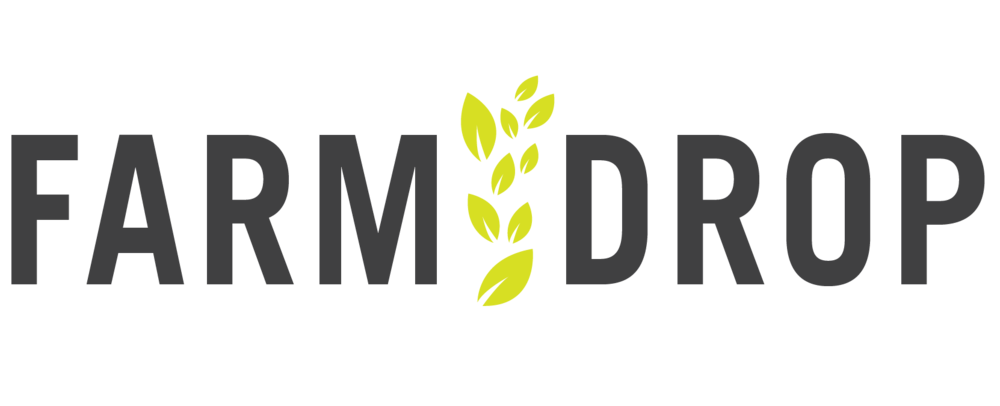
FarmDrop
FarmDrop’s online platform enables pop-up farmers markets that allow farmers to deliver products to a central location, which volunteer site managers then distribute by curbside pick-up or direct home delivery. FarmDrop is operational in six localities in Maine and plans to expand rapidly to additional states, keeping an estimated 500,000 pounds of food from being wasted over the next 90 days.
STORIES AND PHOTOS
A FarmDrop customer in Little Ridge says, “I love this service! I plan to support local businesses including farmers at a higher level of commitment for the rest of my life!! I am so, so grateful that you are and were here for all of us! Thank you!”
A Portland customer says, “I’ve been really enjoying the goodies I’ve been getting from you, especially the Tide line cheeses and the pasta! And the loose leaf lettuce! And the harissa!”
“FarmDrop has been such an exciting project to be a part of and am really looking forward to working with the Portland Cultivating Community Team and expanding to this market," says Thorvald Arnell, Development & Outreach Coordinator at Springworks Farm.
“Our communities are coming together around FarmDrop to support our local farmers to continue access direct-to-consumer sales while keeping customers safe and producers' businesses alive," says Clare Desrosiers of Sunnyside Farm.
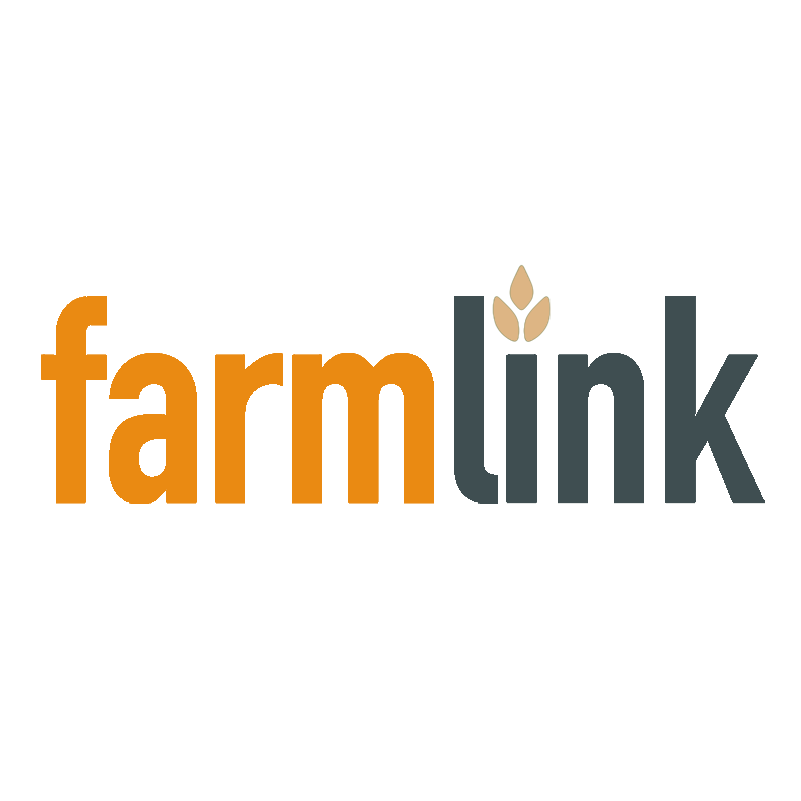
FarmLink
FarmLink has created a new supply chain by providing logistics and distribution support to move surplus food from farms to food banks, while providing economic relief to farm workers and truckers. Since March, FarmLink has rescued over 250,000 pounds of fresh food and expects to collect and deliver another 500,000 pounds in the next 90 days.
STORIES AND PHOTOS
FarmLink told us the story of Blake and her husband Andrew, who started a goat farm in upstate New York with their three children, ages six, four, and one. Their farm, although small, was doing well – they sold the majority of their milk to creameries around the Tri-State area and created a side value product of goat milk gelato, which is popular among college students and local families. However, just like many other small farmers across the nation, the COVID-19 pandemic devastated their business model.
“When coronavirus hit and restaurants closed down, there was no space in homes for delicacies like goat milk gelato and goat cheese,” Blake explained. “Those were the first things to go.” For the first six weeks of the pandemic, all of their distribution creameries shut down. Blake and her husband would dump 95% of the 100 gallons of goat milk they produced each day. “It was like a punch in the gut.” They still had to pay all of their bills, feed their animals and children, and maintain their farm, yet they had no choice but to destroy everything they produced. For a few weeks amid the pandemic, they sold milk to food banks around the Fingerling Lakes through a new creamery, which kept them afloat for a little while, but then their funds ran out as well. To try and preserve some of their milk, Andrew and Blake decided to start bottling their goat milk for later distribution. Blake discovered that goat milk, unlike many baby formulas, is the most easily digestible milk by babies. However, they still had nowhere to send these bottles.
Blake found out about FarmLink by chatting with people at local food banks. Together, they found two organizations eager to receive Blake and Andrew’s bottled goat milk – the North Country Prenatal Perinatal Council and Mercy Church. The NCPPC services women and young families and used 300 quarts of Blake’s milk as baby formula. Mercy Church received the remaining 150 quarts of milk. Mercy Church will distribute the goat milk at their bi-weekly soup kitchens that feed hundreds of people in the upstate area. Blake says, “I’m just so happy that we worked out a way to get this milk back to the people instead of dumping it.
FarmLink also partnered with Food Rescue US – Detroit to help deliver 40,000 pounds of potatoes from a farm in Washington state and 1,430 boxes of fresh produce (equaling 35,750 pounds) from Pacific Produce to the people of Detroit. Thanks to the help of local farms and packaging facilities, FarmLink has been able to help facilitate surplus produce to places and communities in need. Farmers across the US have struggled to unload their produce as a result of declining demand in the food service industry. In order to help fill in gaps of food insecurity, both farmers and packaging facilities alike have stepped up to share the burden of helping to distribute their extra food. The FarmLink team is incredibly thankful for the generous work of both farmers and packaging facilities which directly benefits communities in need of assistance.
FarmLink works with United Hands Food Bank, a neighborhood-run non-profit serving low-income families in the Compton, Los Angeles, and one of the organizations that received a shipment of 450,000 potatoes. United Hands distributed the potatoes to more than 2,000 families at their weekly food giveaway.
“It was a blessing that came from above,” Martha from United Hands said. She had planned to buy potatoes that day, but the shipment provided them with enough food to feed every individual that attended their giveaway. Martha said that since the coronavirus outbreak, members of the community begin to line up at 9:00 am for an event that starts at 2:00 pm. “If you have people lining up in the hot sun for hours, that’s how you know it’s bad.”
Martha also reported a large increase of men and children in line. At the last giveaway, more than sixty men laid off from the same company that day stood in line for the potatoes and other produce. She also saw more children waiting – staying home from school deprives them of school lunches, which for many of them is their only meal of the day.
FarmLink also works with Navajo Nation Potato Delivery. As of this writing, 4,000 positive cases were confirmed in Navajo Nation. FarmLink facilitated the delivery of more than 40,000 pounds of potatoes that would have otherwise gone to waste, from Desert Ridge Farm, in Moses Lake, Washington, to the Navajo Nation communities in New Mexico and Arizona.
The Navajo Nation Christian Response team received and distributed the potatoes throughout the reservation with the help of several other local organizations. Christian Vazquez of Strengthening Nations reiterated the scarcity of basic produce, like potatoes. “We don’t usually have [potatoes] in that bulk and wow, that was awesome,” he said, referencing the truckload of potatoes. “The produce is usually the first thing to go. It’s really fulfilling getting things to people who really need them." Potatoes rise above the level of a staple; they nourish people and help build connections between communities, from Washington to New Mexico and Arizona. These kinds of connections provide hope – even for those fighting personal battles – in the time of coronavirus.

Food Connect
Food Connect is using its technology to connect food and hunger relief efforts in real time, so logistics, matching, and distribution happen seamlessly. As one of DoorDash’s 2020 Social Impact Partners and in partnership with a new network of hospitals, the organization will facilitate the delivery of food directly to patients and senior centers that are in dire need of these types of services. This initiative is expected to recover more than 500,000 pounds of food over the next 90 days.
STORIES AND PHOTOS
Food Connect reports that they launched home deliveries in partnership with a local hospital and a food vendor that provides fresh produce boxes, resulting in three major wins:
- They are supporting local farmers who were impacted by COVID-19, because the produce boxes were purchased from the farmers;
- The hospital has identified food insecure households, and many of these households lack access to public transportation, so Food Connect is delivering much needed fresh produce to households that would have otherwise been left out of traditional relief services; and
- They plan to more than double the reach of the program, so that more families are supported.
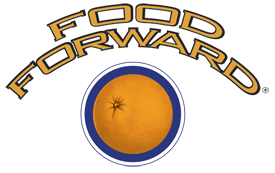
Food Forward
Food Forward is scaling its wholesale produce recovery program in Southern California by expanding its Produce Pit Stop facility and growing the number of food hub locations. The increased capacity will result in at least an additional 2.4 million pounds of rescued food over the next 90 days.
STORIES AND PHOTOS
Prior to the coronavirus pandemic, Food Forward operated a collaborative monthly fruit and vegetable distribution in Inglewood with its close partner, Social Justice Learning Institute (SJLI). These community events proved to be an efficient way to distribute recovered wholesale produce to hundreds of families from Inglewood Unified School District and the local community. As the economic impacts of the pandemic spread across California, Food Forward and SJLI were able to move this monthly distribution event to a weekly basis. Previously, 12-13,000 pounds per month were distributed, but now Food Forward is distributing 55,000 pounds on a monthly basis. In addition, while the Inglewood distribution previously served up to 200 participants, Food Forward is now able to donate produce to 15+ local agencies at each event in addition to individual participants picking up produce.
Local agencies picking up produce at these events in turn use these nutritious fruits and vegetables to help feed the clients they serve. This food hub location shows the importance of flexibility and innovation in meeting emergency food needs – new practices and protocols have been rolled out for safety, and all produce is sorted and pre-bagged prior to distribution.
Food Forward also helped establish the Ventura Rapid Response Hub, an emergency produce distribution hub in partnership with Totally Local VC's Local Love Project (Local Love). Through this operation, Food Forward provides fresh fruits and vegetables to agencies that are feeding families in Ventura County. Food Forward has launched five new Rapid Response Hubs in response to the pandemic, to ensure communities across Los Angeles and Ventura Counties have access to fresh fruits and vegetables. These hubs are a direct response to the increased need in neighborhoods most affected by the loss of services.
At each location, a truckload of recovered produce is quickly distributed to multiple agency partners, who in turn distribute this food to their clients. One agency receiving produce from the Ventura Rapid Response Hub is a local partner that provides individuals experiencing homelessness and/or living with mental illness with basic needs like food and clothing. Since the pandemic’s onset, procuring enough food for their clients has been difficult. One representative from this agency partner said, “Food Forward is our savior! Without the work Food Forward is doing to get us produce through the hub, my residents would be in a really bad place with food insecurity.”
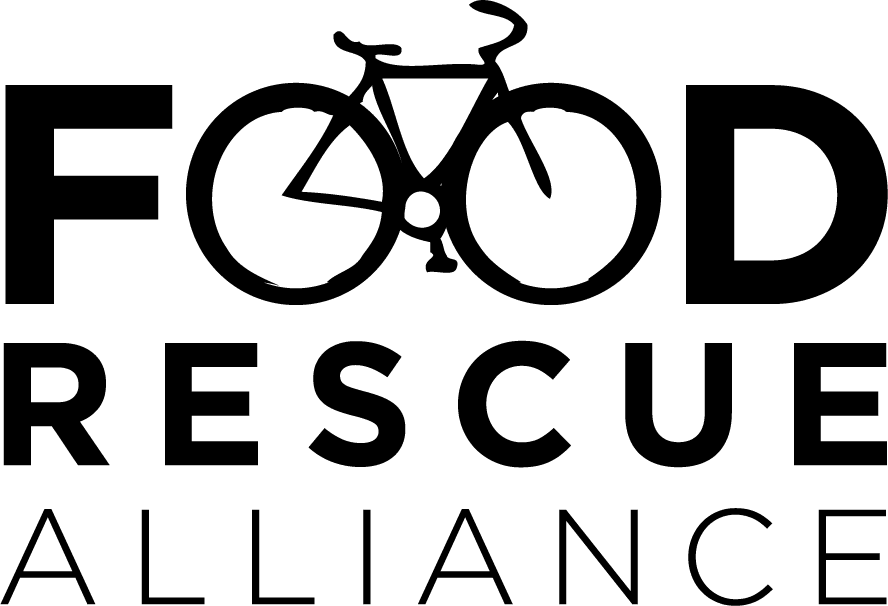
Food Rescue Alliance
Food Rescue Alliance (FRA), managed by Boulder Food Rescue, is a national effort that supports the development and growth of 24 food rescue member organizations across the U.S. Since the onset of the pandemic, FRA members have rescued nearly 740,000 pounds of food monthly. Collectively, they expect to rescue and distribute over 2,000,000 pounds of food in the next 90 days.
STORIES AND PHOTOS
FRA heard from Eat Greater Des Moines, a new Operation Fresh Produce Drop partner: "I wanted to add, specifically how much Eat Greater Des Moines (EGD) has helped the refugee and immigrant community. EGD was one of the first organizations to get fresh food to 250 refugee families from the Congo, Burundi, Eritrea, Karen, Karenni, and Chin. Even though they are beyond capacity, Aubrey hustled to find more resources to include the families we serve." EGD continues to provide food on a weekly basis with no bureaucratic hurdles, and they are finding and connecting the most marginalized communities with food. Their model is grassroots, creative, and responsive.
FRA heard from Laurie Andrews, President of the Community Foundation of Jackson Hole about Hole Food Rescue: “It's much harder to ensure that children have healthy and consistent meals during the summer. Hole Food Rescue created Sprout a few years ago to help feed children when school programs are closed. Sprout is a critical program for local youth, and never more so than this summer, when the coronavirus has affected parent incomes. We applaud Hole Food Rescue and its partners for the work they are doing to address food insecurity and to ensure our community is healthy and thriving this summer.”
From Boulder Food Rescue: “The Boulder Food Rescue NCGP program has been very beneficial to the residents here. We have been able to help provide not only good quality food from donations provided by Sprout's, Great Harvest Bakery, and the Boulder Valley School District, but we have been able to provide a small amount of relief from the economic hardship that many communities are experiencing today with the COVID-19 pandemic. We have been able to provide hope and help to many residents, and the program works. We have a constant flow of residents that use the program each week, and the residents that receive assistance from the Grocery Program range from young college students to single adults, to families with children, to elderly citizens. We have a spectacular delivery system in place, and all food that we receive is put to good use. After the residents are served, any remaining food is delivered to attention homes or shelters to help provide additional support to those most in need.”
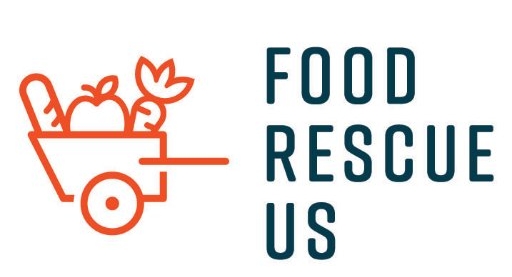
Food Rescue US
Food Rescue US (FRUS) has responded to COVID-19 by launching two new prepared food and last-mile delivery hunger relief initiatives – Restaurant Meal Programs and Community Kitchens, a collaboration with World Central Kitchen. Over the next 90 days, FRUS expects to deliver two million meals from food that otherwise would have been wasted.
STORIES AND PHOTOS
In Detroit, FRUS worked in partnership with local Chef Phil Jones and Make Food Not Waste Detroit to recover and distribute 97,000 pounds of cooked, frozen chicken. Dozens of volunteers came together to help distribute the chicken to more than 16 local social service agencies.
Working with Farm Link Project and the USDA, FRUS received 5,960 boxes of produce that were distributed in Detroit, MI; Chicago, IL; Fort Wayne, IN; and Hamilton, OH. They will be receiving these boxes on a weekly basis and hope to expand this program and be able to provide them to more locations throughout the country.
In Miami, FRUS launched a community kitchen in partnership with Kilgore Culinary and World Central Kitchen at the restaurant Alter. The kitchen was open for a total of two weeks, and one of the goals was to use excess produce/food to help create meals that would then be provided to people who are unemployed and food insecure. This was a way to ensure that Kilgore Culinary was not wasting any of the food they already had in-house, as they are looking to close Alter permanently.
In Northwest CT, FRUS partnered with the UConn extension, the local 4H, and Litchfield Community Center to distribute large donations of milk, yogurt, sour cream, and ice cream to more than 30 social service agency partners. In total, the partnership has distributed 8,640 half-gallons of whole milk donated by Guida's Dairy; 28,000 pounds of yogurt and sour cream donated by Cabot Creamery; and 33 pallets of ice cream donated by HP Hood.
FRUS has worked with a number of food providers to distribute excess food products during this time, including 20,000 meals from Tiller & Hatch, a brand of high-quality meals backed by Jennifer Lopez and Alex Rodriguez, which were provided to thousands of unemployed workers in the hospitality sector as a result of closures of hotels, restaurants, and bars. FRUS also received 45,000 burgers from Beyond Meat that were distributed to various agencies and turned into meals with the help of local restaurants.
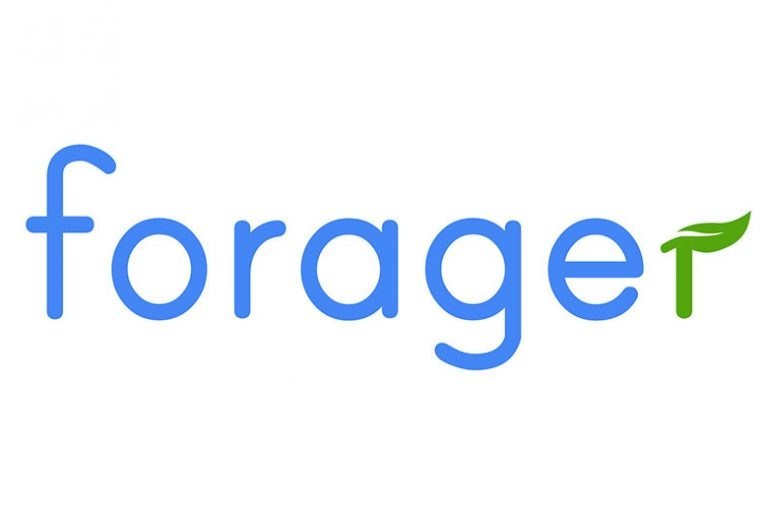
Forager
Forager’s technology platform digitizes the food recovery supply chain to help farmers continue to grow and sell what they produce. Forager also helps gleaning organizations with the aggregation, documentation, and marketing of both surplus and donated crops. In the next 90 days, Forager aims to enable farmers in ten states to sell 5 million pounds of fresh produce that might otherwise have been wasted.
STORIES AND PHOTOS
Forager says, “The truth is surplus will be with us as long as there are farmers growing food. The problem is that there's simply too much of it. The Forager platform holds promise as a part of an integrated solution to reducing on-farm surplus and generating new markets for producers.”
One of Forager's gleaning organizations who is struggling to stay afloat financially after well over a decade of work had this to say about Forager's program: “This [earned revenue model] is a life blood that gleaning organizations need. We know that gleaning is not a costless activity and gleaners would surely do more gleaning if they had more time in the fields and less time trying to raise funds.”
Forager's development partner and existing supplier and buyer networks stepped up to indicate interest in the gleaner program and provided critical feedback on the design of technology upgrades to Forager. Said one, "I am very interested in Forager, as our program has been running into issues of storage and distribution, and the ability to move food quickly, both to food banks and community members, is very appealing. I’d also love to support our farmers, and this seems like a great way to do so."
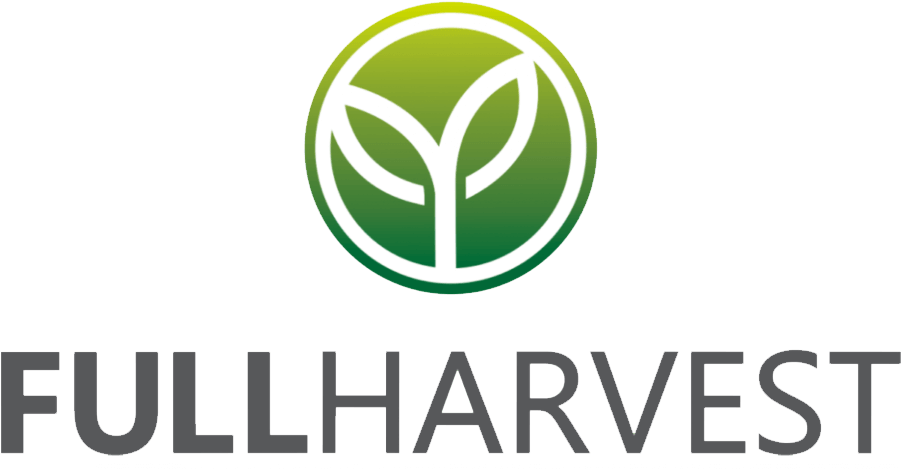
Full Harvest
Full Harvest is a B2B online marketplace that connects food and beverage companies directly to farms to buy imperfect and surplus produce. In response to COVID-19, Full Harvest is leveraging their marketplace to support food banks and nonprofits. They expect to distribute over 500,000 pounds of fresh produce to insecure families through partnerships with World Central Kitchen, Salesforce, and others over the next 90 days.

Goodr
Goodr is a sustainable food waste management technology and logistics company focused on ending hunger. The company is offering their services to farmers, distributors, and suppliers impacted by COVID-19 through a new rapid food recovery program. Using the Goodr app, food donors will receive logistics and delivery resources, allowing them to divert surplus food from landfills and get it to local food agencies.
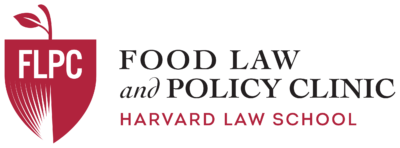
Harvard Food Law & Policy Clinic
The Harvard Food Law & Policy Clinic (HFLPC) has written issue briefs about the impacts of COVID-19 on the food system, developed food policy recommendations, and drafted federal legislation since the onset of the pandemic. When policies, such as the ones HFLPC recommends to expand enhanced tax deductions for food donors or to enable wider use of SNAP benefits, are enacted, tens of millions more pounds of food waste will be rescued.
STORIES AND PHOTOS
According to FLPC, "In June, we launched two state policy tracking tools. The first, our State Policies for Feeding Marginalized Populations Tool, tracks state policies that facilitate food delivery, food at centralized pick-up locations, and funding to support emergency feeding programs. Our research emphasizes marginalized populations – including older adults, differently abled individuals, low-income households, children, and those experiencing homelessness.
"The second policy tracker looks at state-wide stay-at-home orders and advisories. This document emphasizes the impact of those orders and advisories and how they are treating the food system. These tools will serve as a vital resource for tracking best practices, identifying shortfalls, and helping direct practitioners to programs and funding.
"FLPC has synthesized information gathered through the policy trackers into a public Google sheet and will update the sheet regularly throughout the grant period, as well as publish several blog posts that analyze specific best practices or policy suggestions from the policies tracked. The trackers are available here.
"In addition to tracking state policies, FLPC is tracking and analyzing other federal bills such as the Heroes Act and the Food Supply Protection Act that have provisions for small farmers.
"In the coming weeks, several U.S. Senators will be introducing legislation that FLPC drafted in coordination with a larger coalition. The legislation includes several avenues to make it easier for food retailers to participate in online SNAP sales. As USDA has rolled out online SNAP sales in response to the pandemic, in most states, very few retailers or vendors are able to qualify for online SNAP sales, which is leading to excess food at some vendors and consolidation of the market in the hands of a few vendors. This legislation will make it easier for smaller vendors or independent retailers to accept online SNAP by providing funding to USDA to develop an online EBT payment portal serving smaller vendors and by providing funding for technical assistance to other retailers. We also anticipate that one of the Representatives we are working with will be introducing legislation to create several tax incentives for food donation, including expanding the existing enhanced deduction to include food offered for sale at a low price, creating a new deduction to cover the cost of transporting donated food, and creating an alternative tax credit that farmers can claim instead of the enhanced deduction."
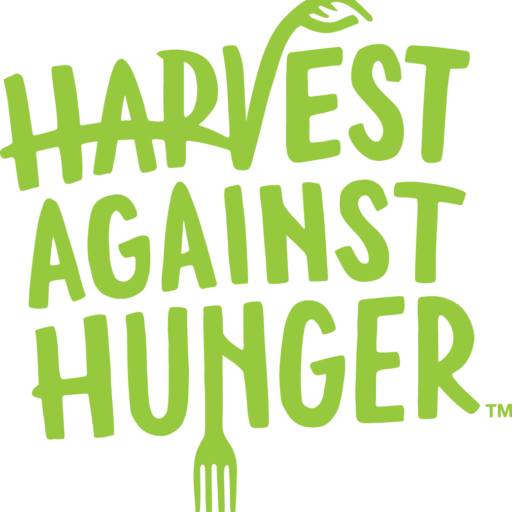
Harvest Against Hunger
Harvest Against Hunger (HAH) connects farmers, truckers, volunteers, and food banks in order to get fresh produce to food insecure individuals. In response to COVID-19, HAH is scaling its Farm to Food Pantry and Farmers Share initiatives and expects to rescue and deliver over 850,000 pounds of fresh food over the next 90 days.
STORIES AND PHOTOS
At the beginning of the pandemic, a food pantry director where HAH staff were volunteering reported that “50% of our services are going to first-time visitors.” More recently, the ongoing impacts of the pandemic are causing people who had moved beyond the need for food assistance to find themselves back in a crisis situation – and back in need of assistance.
HAH reports that they are partnering with the Washington State Trucking Association to connect existing trucking resources with newly donated loads of produce. This has proven to be a highly effective partnership, allowing them to move perishable loads between their hunger relief program sites, as well as from new donors. They have also developed partnerships with several new organizations to gather food destined to go to waste due to processing facility slowdowns related to COVID-19.
HAH heard from a farmer who has been participating in their new partnership with PCC Community Markets that "My dad [a second generation farmer in Washington, and representative of many of the small- to medium-scale growers who were impacted by COVID-19] was so excited about this opportunity. He started farming just to help other families be able to eat organically without the large cost! It’s truly a great feeling to help food banks and our communities anywhere we can."
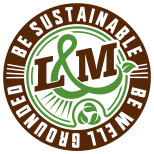
L&M Companies
L&M Companies is a year-round grower and supplier of fresh fruits and vegetables. Since the COVID-19 pandemic began, the company has sourced, packed, and distributed over 900,000 pounds of produce to hunger relief organizations in Florida. In the next 90 days, L&M expects to rescue 16,000,000 pounds of food as they expand their Farmers to Families Food Box Program to North Carolina, delivering food to rural families in need.
STORIES AND PHOTOS
L&M reports that Dream Coat, a small local thrift store, was able to open back up and distribute produce boxes to community members in need. Helen McGee, a member of St. James United Methodist Church, used her network of Methodist churches and philanthropic organizations to develop a hub system for L&M's volunteer unloading and distribution. This allowed L&M's one truck to deliver to four or five "hubs" on Friday morning, which then distributed 500 boxes of produce throughout the community to families in need.
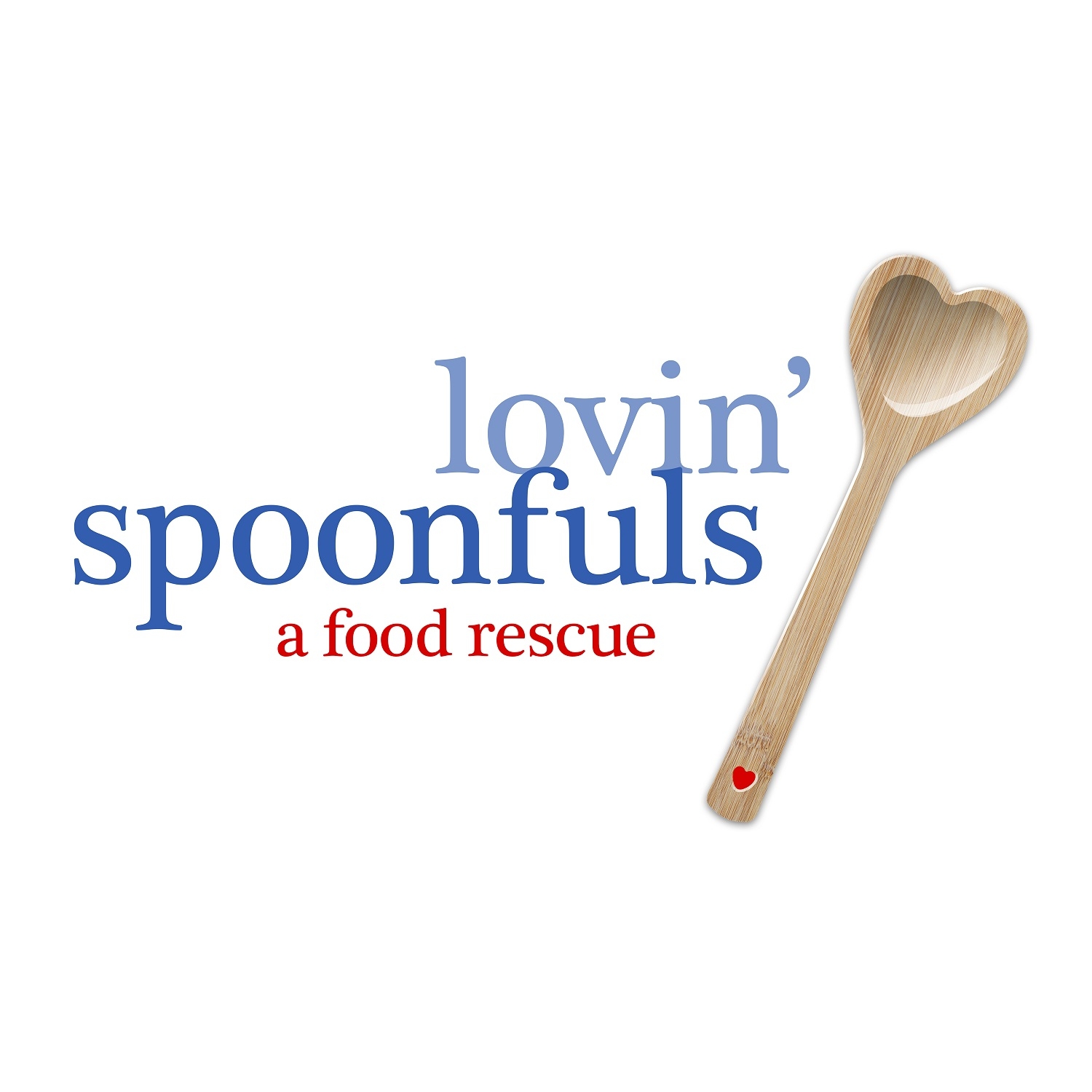
Lovin’ Spoonfuls
Lovin’ Spoonfuls facilitates the recovery and distribution of healthy, perishable food that would otherwise be discarded and has expanded its operations in response to the COVID-19 pandemic. Since March, Lovin’ Spoonfuls has rescued and distributed over 610,000 pounds of food to food insecure individuals in Massachusetts and expects to double that in the next 90 days.
STORIES AND PHOTOS
A representative from Haley House, one of Lovin' Spoonfuls nonprofit partners, says, “Lovin' Spoonfuls' deliveries are the highlight of every Tuesday and Thursday. Especially all the greens!”
Another nonprofit partner says, "We would like to also express our sincere appreciation for your services to our Madison Park Development Corporation. The food distribution is a great resource for our residents and to the community that we serve. Not only through your services have we been able to provide the residents with food, there has also been an increase in social cohesion and a decrease in social isolation.”
The People Helping People Food Pantry, another nonprofit partner, says, “Our partnership with Lovin’ Spoonfuls has meant a tremendous increase in our access to fresh food. This includes prepared food as well as produce and meat, and it has meant a steady increase in the amount of food we can provide to our families.”
Paraclete, another nonprofit partner, says, “We are saving $20,000 annually on food due to the partnership with Lovin’ Spoonfuls, which is nearly 10% of our $250,000 annual budget.”
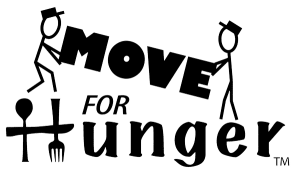
Move for Hunger
Move for Hunger is leveraging its unique and national logistics network of trucking capacity and movers to rescue and transport food to those that need it most. Over the course of the first seven weeks of the pandemic, they were able to transport 384,000 pounds of food and expect to rescue more than 570,000 pounds in the next 90 days and continue to scale thereafter.
STORIES AND PHOTOS
Move for Hunger partner Premium Q Moving & Storage has been doing their part to help fight hunger in Massachusetts during the COVID-19 pandemic. Every Monday, Premium Q volunteers to pick up donations from the Greater Boston Food Bank and deliver it to Project Soup, a food pantry which is affiliated with the Greater Somerville Homeless Coalition (GSHC).
"We have been partnering with Move for Hunger for years, but when something like this pandemic happens, we knew we had to reach out," said Victor Chaves, Sales Manager at Premium Q Moving & Storage. "With so many lives being affected it was more apparent than ever that we needed to do whatever we could as a company. These are our neighbors, the ones that made Premium Q Moving what it is, and we were looking to help anyway we could. We really pride ourselves on not only providing a service, but really helping people out. So when our guys actually get to help out with something as meaningful as this, it just makes all the hard work worth it. Especially during a time like this."
One new potential partnership with the freight industry came through Move for Hunger's latest work with Commercial Carpet Logistics (CCL), a Maryland trucking company that services the flooring industry. CCL had received an email from the Maryland Motor Truck Association about Move For Hunger, and they wanted to volunteer their trucks and drivers to support COVID-19 relief efforts. Shortly thereafter, CCL picked up more than 119,000 pounds from Kraft Heinz and delivered it to the SHARE Food Program. Although CCL isn't a traditional moving company, they have the capacity to help and a willingness to support Move for Hunger's mission. “The pickup for Kraft Foods was only about 40 minutes from our terminal, and we set it up with Share Food in Philadelphia, and it went off [perfectly],” CCL’s Executive Vice President, Cassie Sealing, shared. “It was such a great experience. We want to inspire other carriers to get involved. If I can turn my efforts to giving back, I suddenly feel encouraged, I feel renewed. I needed the opportunity to give back, to help Move For Hunger, and it is inspiring to me in our own business.”

Natural Upcycling
In response to COVID-19, Natural Upcycling is expanding beyond its regular anaerobic digestion operations to address the vast quantities of perfectly healthy milk being dumped on farms. By leveraging its logistics and distribution expertise and partnering with the Dairy Farmers of America, Natural Upcycling is launching its initial recovery project by rescuing 25,000 gallons of surplus milk in upstate New York and delivering it to food banks.
STORIES AND PHOTOS
Natural Upcycling reports that in mid-May, they partnered with fellow Fund grantee FarmLink to amplify their milk donation efforts. They collected and processed 4,000 gallons of milk, which were then hauled to the River Fund in New York City –FarmLink donated 2,000 gallons and the trucking, which Natural Upcycling matched. Natural Upcycling is now working on a recurring weekly donation project with New York State Senator Jessica Ramos's district in Queens.
On June 1, Natural Upcycling hosted a drive-thru milk distribution event in partnership with the Livingston County Farm Bureau. Natural Upcycling donated the milk and event signage/security, and LC Farm Bureau arranged publicity and volunteers. Natural Upcycling reports that the turnout was tremendous for such a rural area, with more than 1,100 gallons of milk distributed. Many of the families who benefitted were first-time recipients – by distributing the milk closer to their communities outside of the major cities, Natural Upcycling was effectively able to achieve “last-mile” delivery.
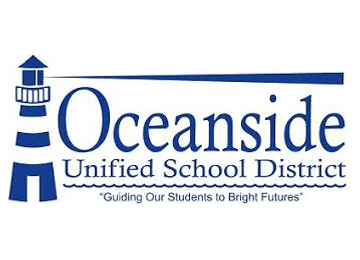
Oceanside Unified School District
Oceanside Unified School District (OUSD) has been providing breakfast, lunch, and dinner to students and their families since the closure of schools due to COVID-19. (One in two students is considered food insecure and relies on this service). In the next 90 days, OUSD will serve 720,000 meals (864,000 pounds of food) and continue to employ more than 100 Nutrition Services employees that would otherwise be without work.
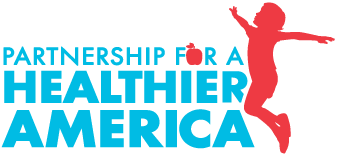
Partnership for a Healthier America
Partnership for a Healthier America, in collaboration with the Produce Marketing Association, recently launched the Fresh Food Fund to provide boxes of high-quality fruits and vegetables to individuals in economically disadvantaged communities. This initiative is expected to distribute more than 250,000 pounds of rescued food in its pilot city and then quickly expand to 25 cities nationwide.
STORIES AND PHOTOS
A Denver coordinating partner says, “This is amazing, thank you! We have gotten a ton of compliments about the berries, cantaloupes, tomatoes, and broccoli. Our folks are just super grateful! Several Moms teared up again today! This work makes us feel so amazing.”
Another partner says, “It has been an amazing week. All the boxes will be distributed by the end of the holiday weekend. We made so many people cry yesterday, families who said they cannot remember the last time they ate a fresh piece of fruit or had enough fresh groceries to prepare a meal."
“We had no idea we were picking up fresh, high quality produce. We assumed it was on the verge of spoiling. WOW! It’s beautiful produce. Thank you SO much! This is a huge blessing to our organization and all the families and children that will be receiving [it]," said another Denver local coordinating partner.
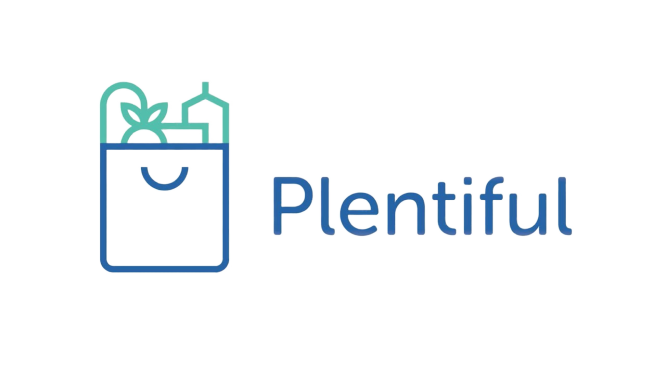
Plentiful (City Harvest)
Plentiful, developed by City Harvest in partnership with the United Way of NYC, is a digital communication system that allows food insecure individuals to connect directly with their local food agencies. Incorporating the Plentiful app into City Harvest’s work (expected to rescue and deliver more than 18,000,000 pounds of food in the next 90 days) will both increase the quantity of food rescued and create a more dignified experience for food insecure individuals.

Replate
Replate uses technology to mobilize communities to reliably redistribute surplus food to those experiencing food insecurity. In response to COVID-19, Replate launched Replate Home, a new channel for the food insecure to request food deliveries directly to their homes. To date, they’ve successfully piloted the new service in NY and the Bay Area and will launch Replate Home in L.A. before the end of the year. Over the next 90 days, they expect to recover more than 500,000 pounds of food.

Seashare
SeaShare works closely with the US seafood industry to source high quality, nutritious seafood and has provided more than 750,000 pounds of seafood to Feeding America-affiliated food banks across the country since the onset of COVID-19. Over the next 90 days, SeaShare expects to source, process, and deliver an additional 750,000 pounds to those in need.
STORIES AND PHOTOS
SeaShare described some of their work: "New York and Connecticut each received semi truckloads of pollock, over 37,000 pounds, nearly 150,000 servings, each. San Francisco received a semi truckload of bycatch salmon steaks. The feeding program at the Union Gospel Mission in downtown Seattle received almost 12,000 pounds of bycatch salmon and halibut. Bycatch whole salmon was sent to the food bank in Kodiak, AK and given to struggling senior citizens in the community.
SeaShare heard this from its partners at the Southeast Alaska Food Bank in Juneau, Alaska: "We took delivery yesterday of 14,681 pounds of SeaShare product and transferred the 15 pallets to our 40' freezer container [donated by SeaShare to the food bank in 2019]. Thank you for the product!"
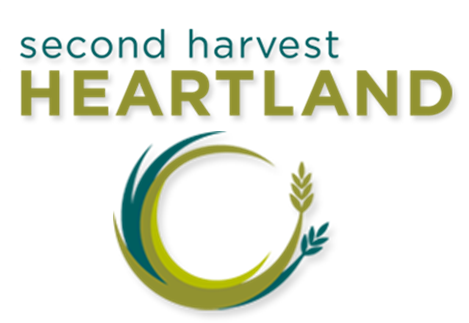
Second Harvest Heartland
Second Harvest Heartland launched the Minnesota Central Kitchen (MCK) in March, a collaborative effort with the hospitality industry and social services sector to make and distribute healthy meals to food insecure individuals, as well as address the growing amount of otherwise wasted food during the COVID-19 pandemic. In the next 90 days, MCK expects to provide at least 426,000 meals and employ 100 individuals.
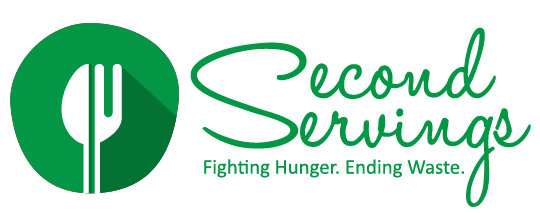
Second Servings of Houston
Second Servings of Houston (SSH) recovers and distributes fresh, surplus food in Houston, TX. During the onset of COVID-19, SSH nearly tripled the amount of food they recovered from the previous year (about 500,000 lbs of food) and launched a mass meal relief program that provides about 40,000 chef-prepared meals. They expect to recover 600,000 lbs of food in the next 90 days.
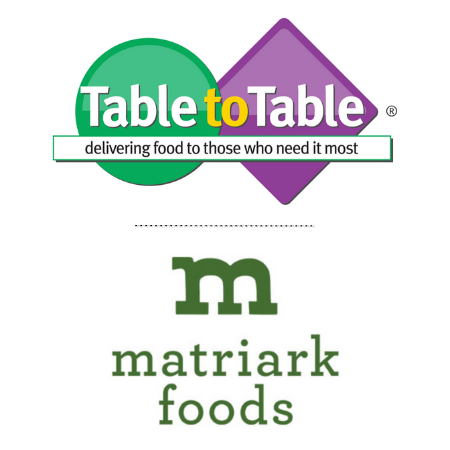
Table to Table
Table to Table (T2T) is a community-based food rescue program that provides perishable food to organizations that serve the hungry throughout New Jersey. In partnership with Matriark Foods, T2T will deliver healthy and convenient value-added meals such as soups and stews to food insecure individuals. They expect to rescue and process at least 500,000 pounds of food in the next 90 days.
Take Care (Bitwise Industries)
Take Care, developed by Bitwise Industries and in partnership with the Central CA Food Bank and Neighborhood Industries, is a custom software that streamlines requests from underserved communities and supports the coordination of grocery box pick-ups and deliveries. They expect to recover and distribute at least 600,000 pounds of food in the next 90 days.

Treasure8
Treasure8 preserves the nutritional value of whole foods that may otherwise be wasted using their patented dehydration systems. In response to COVID-19, Treasure8 will prevent surplus fresh produce from going to waste on farms and at food businesses by transforming it into nutritional powders, and providing it to hunger relief organizations and frontline healthcare workers. Over the next 90 days, they expect to prevent at least 500,000 pounds of food from going to waste.

The Wave Foundation
The Wave Foundation is a coalition of companies that are recovering, preparing, and distributing regional foods from farmers, fisherman, and ranchers to those in need, including the Affiliated Tribes of Northwest Indians, a strategic partner. They expect to recover 600,000 pounds of food in the next 90 days.
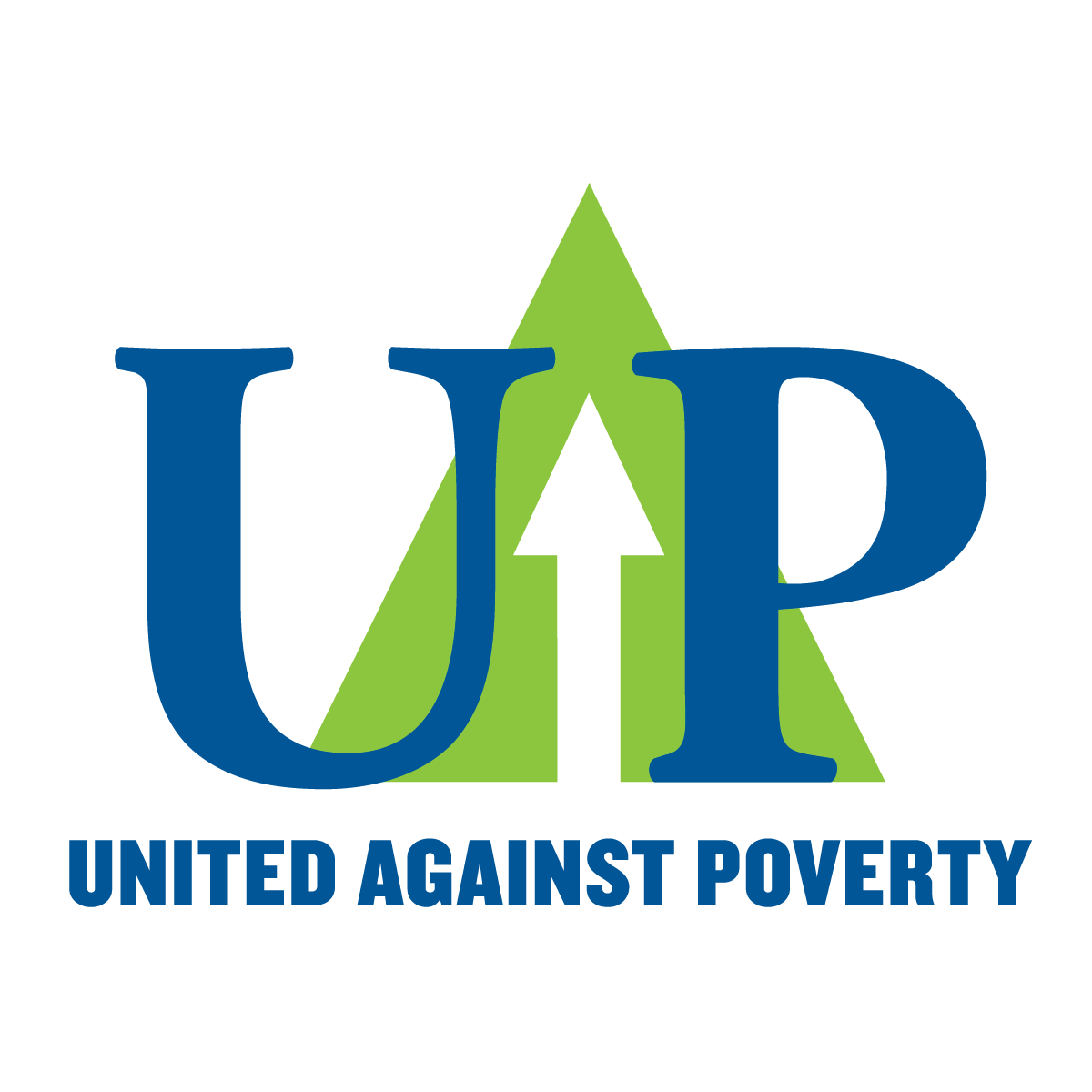
United Against Poverty
United Against Poverty takes a holistic approach to helping those in poverty in Florida through services including supplemental food aid, housing subsidies, crisis care, case management, as well as employment training and placement. In response to COVID-19, they launched a Mobile Market Program to immediately distribute families in need. They expect to recover over 700,000 pounds of food in the next 90 days.
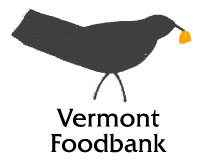
Vermont Foodbank
The Vermont Foodbank (VF) is Vermont's only food bank and largest hunger-relief organization. During the early phases of the pandemic, VF has distributed about 1.6 million pounds of food, most of which is fresh produce, meat, and dairy provided by local growers and in partnership with the Dairy Farmers of America through VF’s Feeding Vermonters program which helps more than 150,000 individuals. In the next 90 days, they expect to recover and distribute more than 550,000 pounds of food.
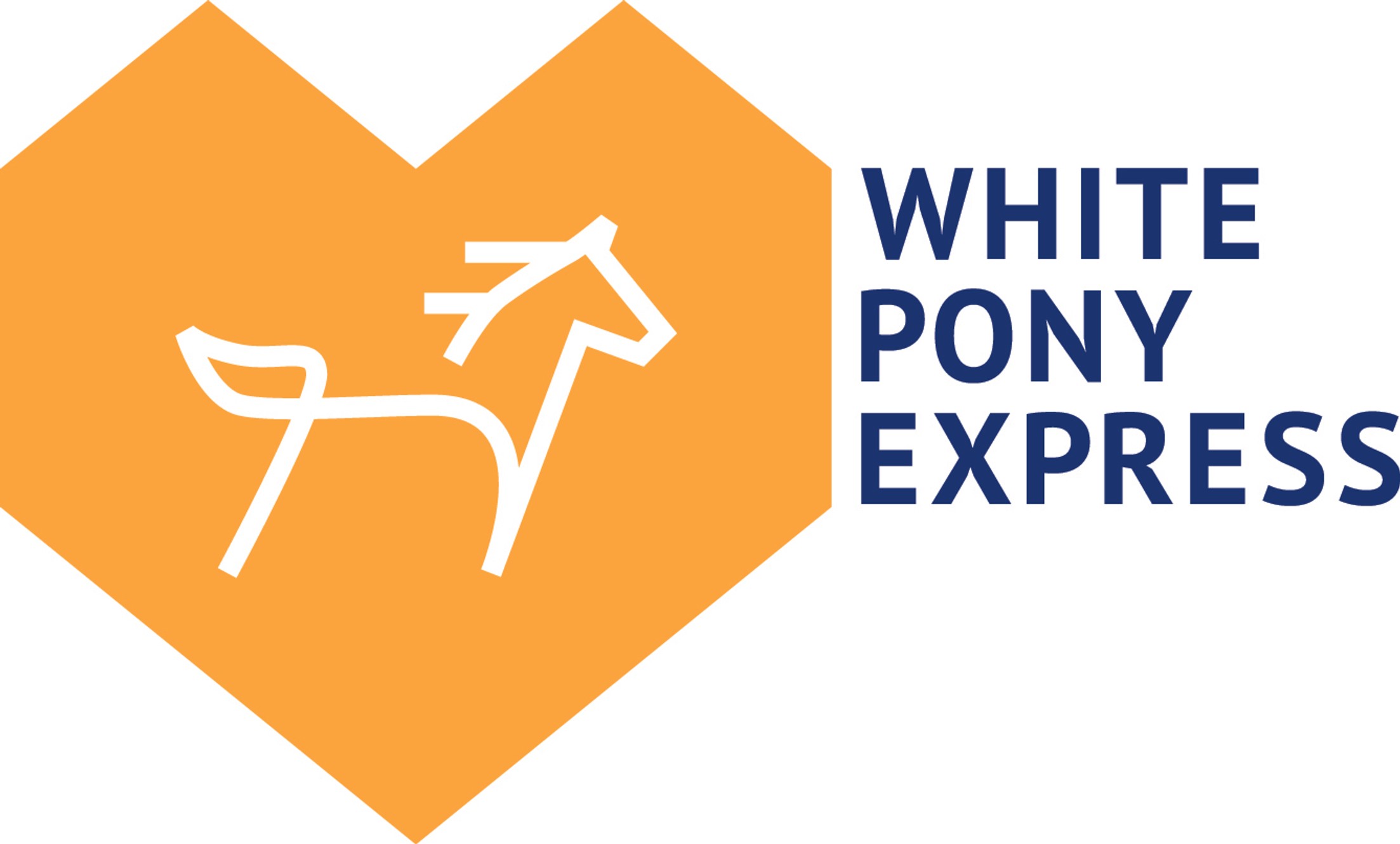
White Pony Express
White Pony Express (WPE) has rescued and delivered nearly 800,000 pounds of food since the onset of COVID-19 via their innovative Food Rescue and General Store "Mobile Boutique" efforts. In the next 90 days, WPE expects to distribute 1,800,000 pounds of food to its network of more than 80,000 individuals in need, including food from the USDA Farmers to Families Food Box program.